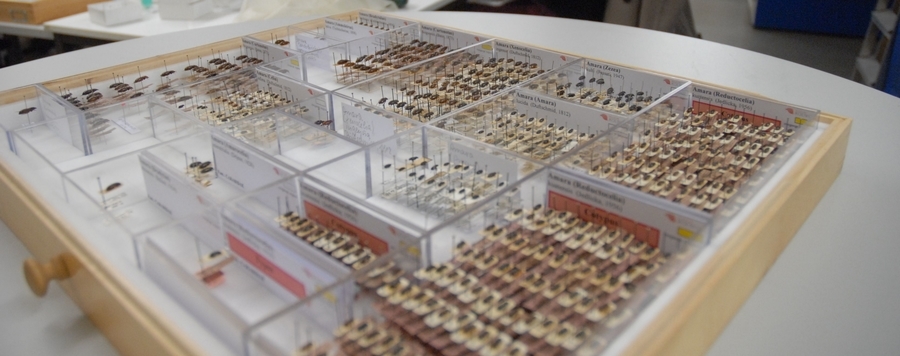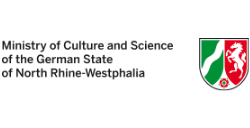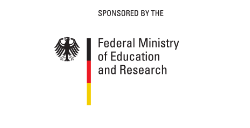Since these groups are among the most diverse beetles representing nearly half of all living beetle species the authors of the study are convinced that these events were among the most important triggers for the successful evolution of beetles. Plant cell wall-degrading enzymes appear to have been key to the Mesozoic diversification of herbivorous beetles. Remarkably this incorporation of genes occurred in two independent events. These enabled efficient digestion of plant tissues, including lignocellulose in cell walls, facilitating the evolution of uniquely specialized plant-feeding habits, such as leaf mining and wood boring.
Furthermore, the phylogenomic analyses of the team resolved previously controversial beetle relationships and dated the origin of Coleoptera to the Carboniferous.
Beetle diversity thus appears to have resulted from multiple factors, including a low rate of lineage extinction over a long evolutionary history, codiversification with angiosperms, and adaptive radiations of specialized herbivorous beetles following convergent horizontal transfers of microbial genes encoding plant cell wall-degrading enzymes. The results of this paper underscore the intimacy and complexity of the evolutionary relationships between insects, plants, and microorganisms and show how analyses of large-scale genomic data are revealing the evolution and genomic basis of insect biodiversity.
Source: Quelle: The evolution and genomic basis of beetle diversity. Authors
Duane D. McKenna, Seunggwan Shin, Dirk Ahrens, Michael Balke, Cristian Bezaa, Dave J. Clarke, Alexander Donath, Hermes E. Escalona, Frank Friedrich, Harald Letsch, Shanlin Liu, David Maddison, Christoph Mayer, Bernhard Misof, Peyton J. Murin, Oliver Niehuis, Ralph S. Peters, Lars Podsiadlowski, Hans Pohl, Erin D. Scully, Evgeny V. Yan, Xin Zhou, Adam Slipinski and Rolf G. Beutel.
www.pnas.org/cgi/doi/10.1073/pnas.1909655116
Contact: Dr. Dirk Ahrens
Head oft Department Arthropoda
Head of Section
Curator
Coleoptera
Tel: +49 228 9122-286
Fax: +49 228 9122-212
Mail: d.ahrens [at] leibniz-zfmk.de
------------------
The Leibniz Association connects 95 independent research institutions that range in focus from natural, engineering and environmental sciences to economics, spatial and social sciences and the humanities.







